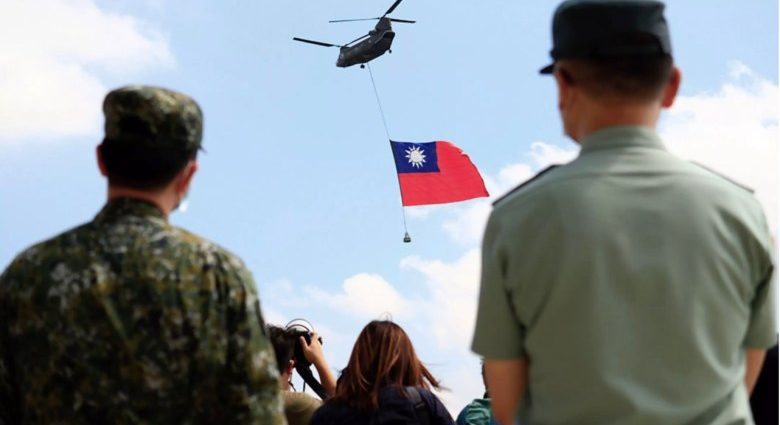A minority political group in Taiwan, which now controls eight key seats in the Legislative Yuan, is demanding reform of the lawmaking body as a precondition for partnership with the ruling Democratic Progressive Party (DPP).
After the Democratic Progressive Party (DPP) won a third consecutive four-year term at the January 13 election, the Taiwan People’s Party (TPP) said on Monday that it is open to working with other parties on individual topics while stressing that its cooperation will be based on reason, not ideology.
The TPP, led by former Taipei mayor Ko Wen-je, said the 113-member Legislative Yuan should undergo reform to increase transparency and improve its legislative procedures.
The TPP has big bargaining chips because neither the DPP nor the Kuomintang (KMT), the biggest opposition political party, won majority control of the Legislative Yuan. The DPP’s Lai Ching-te won the presidency with 40.1% of the vote, outpacing the KMT’s Hou Yu-ih who won 33.5%.
If the DPP wants Yu Shyi-kun, the Legislative Yuan’s incumbent head, to renew his term, it will have to satisfy the TPP’s demands before the law-making body elects its new president and vice president on February 1. Otherwise, the KMT’s Han Kuo-yu will most likely head the legislature.
Sue Tzu-chiao, a professor of political science at Taiwan’s Soochow University, said the TPP is closer to the KMT than the DPP in political ideology but it is still possible that the TPP and DPP can form an alliance.
He speculated that the two parties may be able to compromise on certain issues on a case-by-case basis, especially if the DPP is willing to share certain government positions with the TPP. In fact, TPP leader Ko told the media before the elections that his party would work with other political parties on individual topics.
In an election campaign video previously released by the DPP, Taiwanese President Tsai Ing-wen is seen driving a car while now President-elect Lai is on her side. When asked by Tsai what he will do if the DPP can’t control the Legislative Yuan, Lai says he will “recruit some new talents.” It is widely understood he plans to share power with the TPP.

Theoretically, if the KMT and TPP ally in the Legislative Yuan, they can pose a big political challenge to the ruling DPP as they have the numbers to jointly vote down bills and budgets submitted by the Lai administration. A majority of the legislature can also declare and end martial law.
On January 13, a total of 19.54 million people in Taiwan cast their votes in the presidential election. The ruling DPP won 5.58 million votes (40%), compared with the KMT’s 4.67 million votes (33.5%) and the TPP’s 3.69 million votes (26.5%).
In 2020, the DPP won 8.17 million votes as many young people voted for Tsai after seeing the anti-extradition protests in Hong Kong in the second half of 2019. At that time, the KMT received 5.52 million votes and the People First Party won about 600,000 votes. That means the DPP lost 2.59 million supporters in the latest election from four years ago.
In the latest Legislative Yuan elections, the DPP only won 51 seats while the KMT secured 52. The KMT actually controls 54 seats due to its connections with two independent lawmakers.
All in all, the election results were in line with polling predictions, Taiwan’s media said.
Chinese commentators said the victory of Lai, a self-claimed worker for “Taiwan independence,” will not ease tensions in the Taiwan Strait. At the same time, many noted it’s unlikely that the DPP can change the status quo of cross-strait relations without control of the Legislative Yuan.
“Due to his insistence and fantasy of Taiwan independence, Lai may want to further increase the tensions in the cross-Strait relations, which have already lacked mutual trust for some time,” said Zhu Weidong, director of the Institute of Taiwan Studies at the Chinese Academy of Social Sciences.
“But in the coming four years, his aggressive ‘Taiwan independence’ advocacy will face a lot of limitations,” Zhu added noting that the DPP no longer controls a legislative majority.
He said mainland China will continue to send clear signals to Taiwanese separatists that any move towards declaring independence would mean war and an earlier reunification of the self-governing island and the mainland.
Liu Guoshen, a professor at the Taiwan Research Institute of Xiamen University, also said Lai will not be able to do whatever he wants in the coming four years as the DPP lost a large number of its supporters to the TPP at the latest presidential election.
After Lai won the presidential election, the governments of the United States, the United Kingdom, Canada and Singapore expressed congratulations to the DPP. All said they aim to increase cooperation with Taiwan.
Several retired US officials even arrived in Taiwan to meet with Lai and the outgoing Tsai. The US, Japan and several European countries are planning to send delegations to attend Lai’s inauguration ceremony in Taipei on May 20.

“Anyone in the international community who violates the one-China principle is interfering in China’s internal affairs and infringing upon China’s sovereignty and will face the joint opposition of the Chinese people and the international community,” Mao Ning, a spokesperson of the Chinese Foreign Ministry, said Monday.
“China deplores and strongly opposes relevant countries’ wrong practices violating the ‘one-China’ principle, including issuing statements and expressing congratulations,” she said. “We’ve lodged serious démarches.”
For decades, the West had avoided commenting on political events in Taiwan as Beijing considers the island a renegade Chinese province. But the taboo was broken when then-US president Donald Trump phoned Tsai to congratulate her upon winning Taiwan’s presidential election in December 2016.
Read: Beijing reminds Taiwanese to pick the ‘right’ leaders
Follow Jeff Pao on Twitter at @jeffpao3

